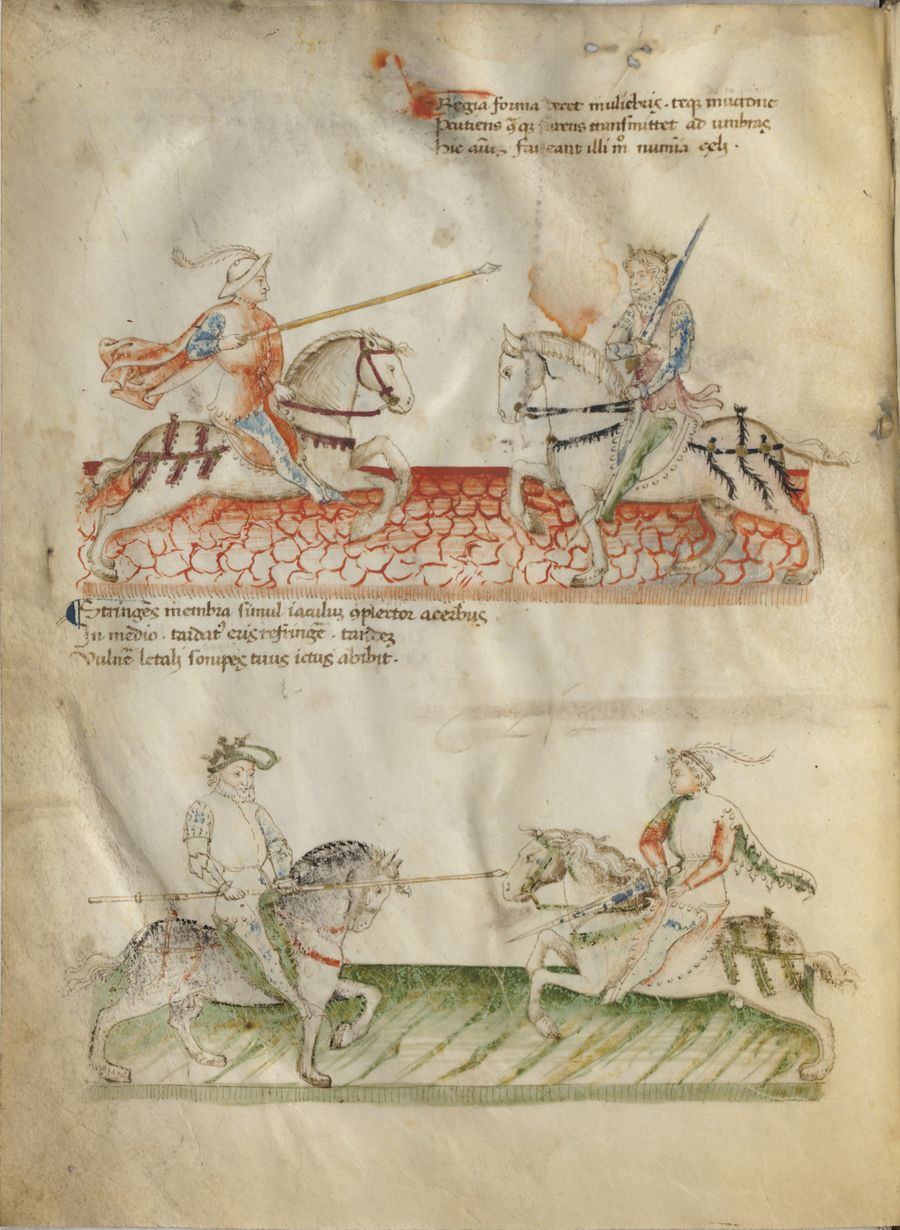|
|
You are not currently logged in. Are you accessing the unsecure (http) portal? Click here to switch to the secure portal. |
User:Kendra Brown/Florius/English MS Latin 11269 02v
Latin 02v
- ¶ Regia forma decet muliebris. teque mucrone[1]
Percutiens contra que furens transmittet ad umbras
Hic animus / faveant illi modo numina caeli.
¶ Stringens membra simul, iaculum complector[2] acerbus
In medio. tardatus eris refringere[3] tandem
Vulnere letali sonipes[4] tuus ictus abibit.
Italian
|
I'll beat your lance with my sword, |
[30b-b] Cum la spada tua lança io rebatero |
|
At mid-lance I come, well-enclosed like this, |
[31a-a] A meça lança io vegno acossi ben asserato |
English 2v
¶ The royal, womanly form is proper.[5] And beating
with the point against you, and this courage sends the Raging One across to the ghosts
but only if gods of heaven would favor/support that.
¶ Drawing [my] limbs simultaneously inward, I, the Bitter One, grip the javelin
in the middle. You will have been delayed in breaking through [my guard].
In the end, your horse will depart having been struck with deadly wounds.
- ↑ Added later: "de la pointe".
- ↑ Added later: "remoror [!] jaculum".
- ↑ The translator appears to be using 'stringere-refringere' as a pair, as both words are associated with defending and attacking fortified gates, for rhetorical effect; however, English doesn't have a good oppositional pair that also conveys the meanings of the words.
- ↑ Added later: "eqqus". Probably meant to be “equus”, but the two q’s are fairly clear.
- ↑ While there are several possible translations for 'decet', we chose proper because of the horse's gait, in contrast with the raging opponent.

